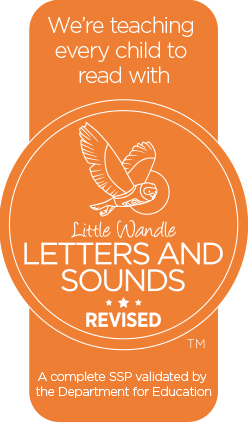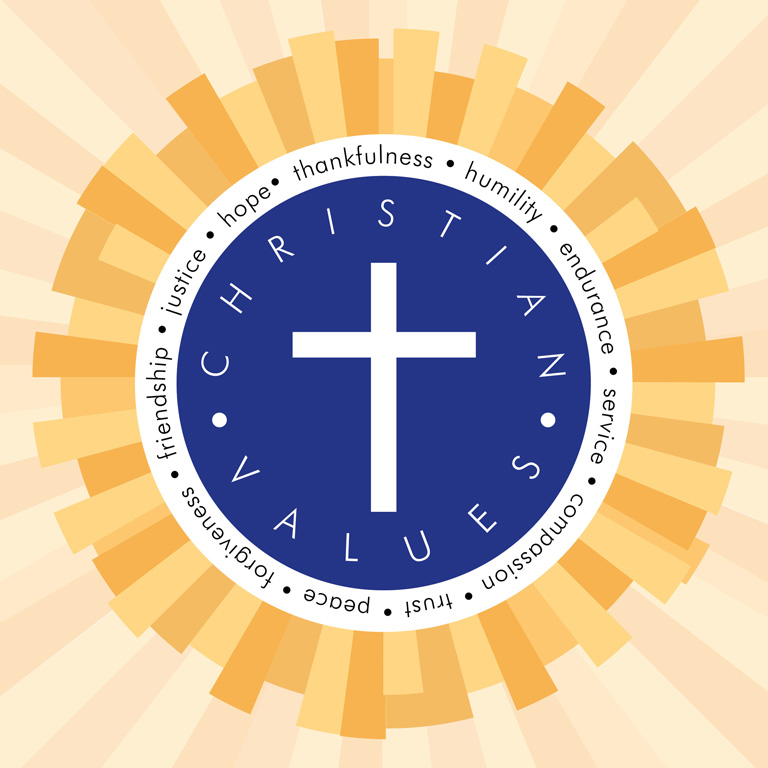Phonics and Reading
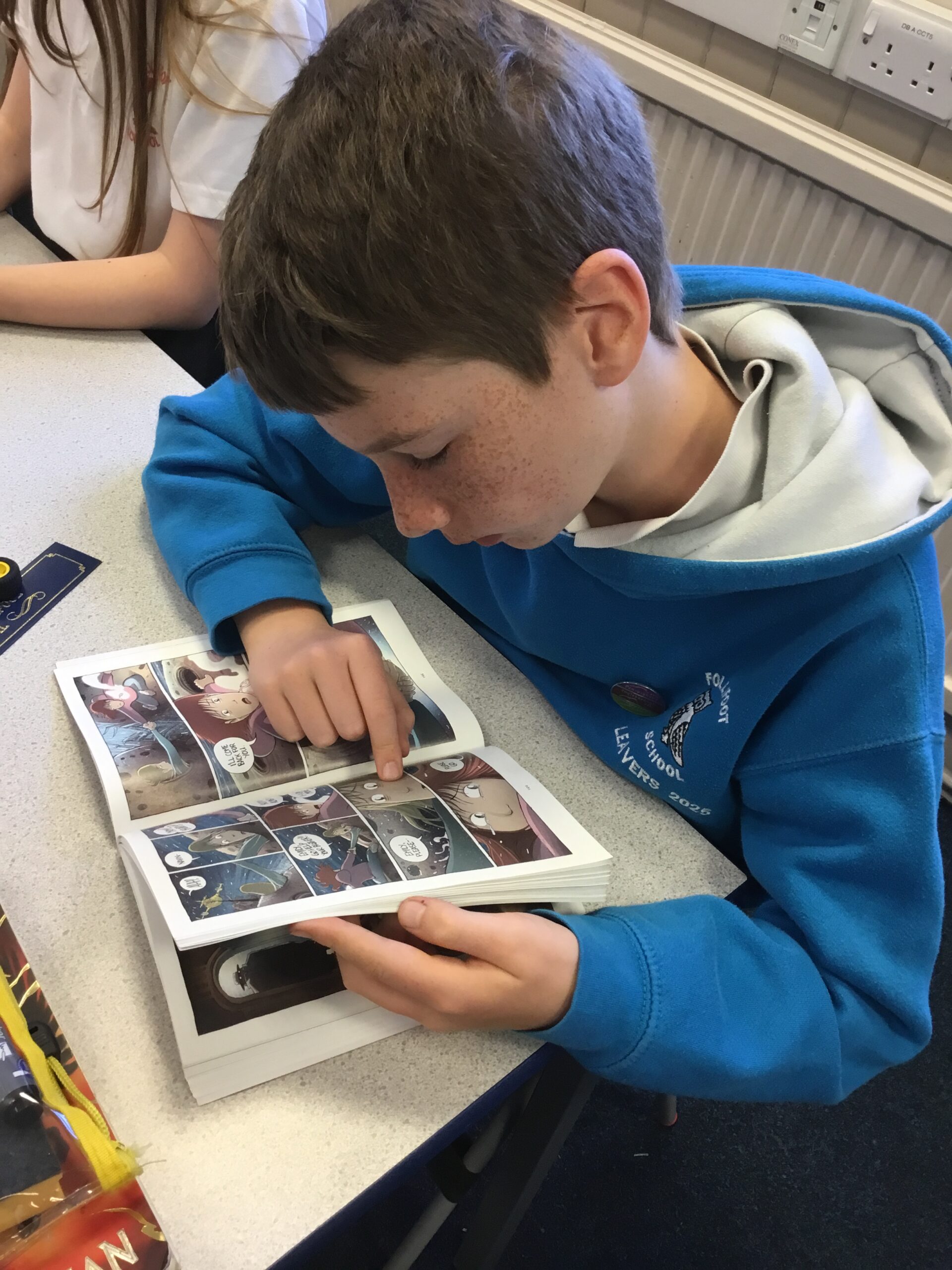

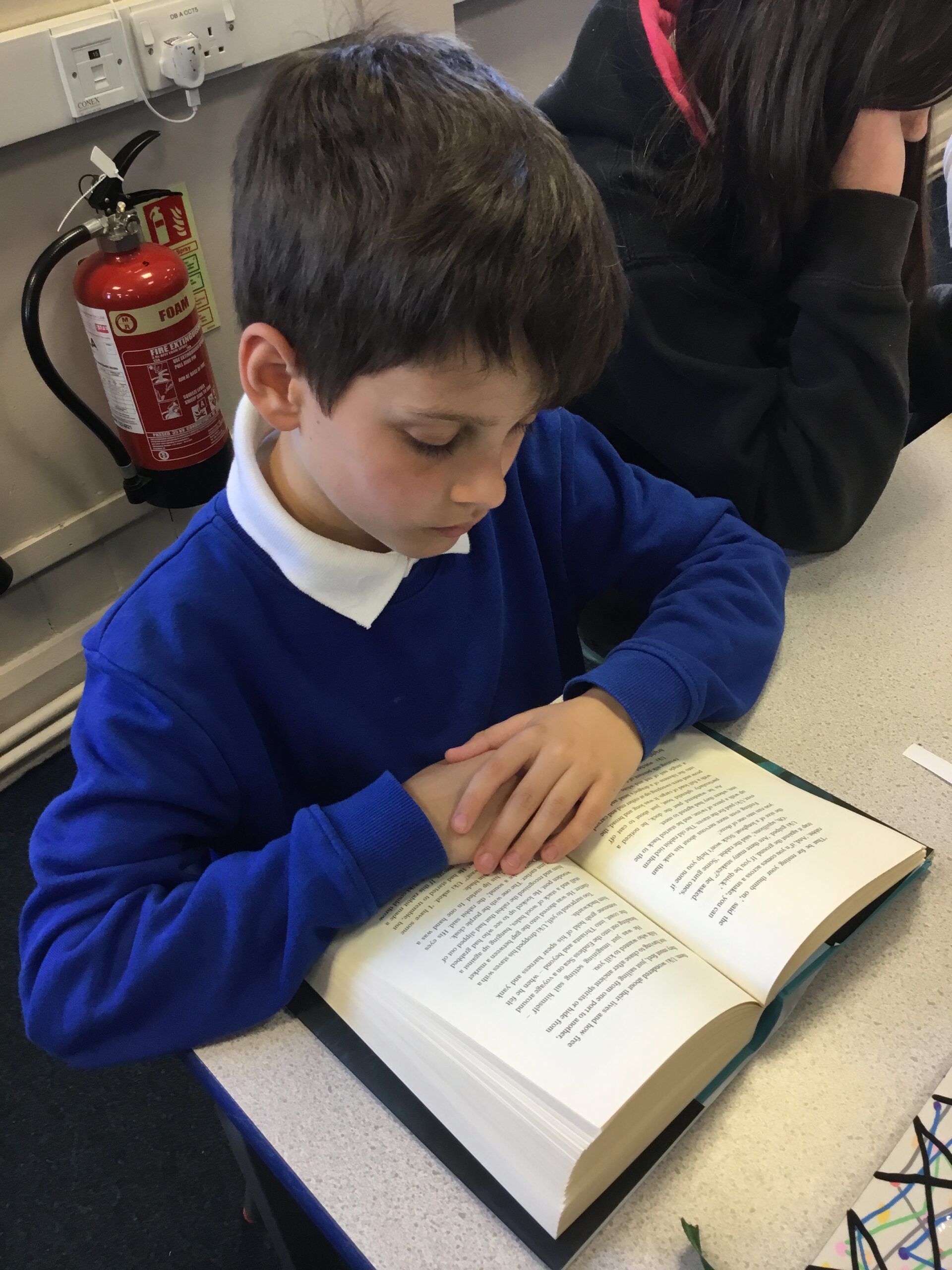
Reading offer at the Federation of Follifoot and Spofforth Schools
Reading is an essential part of everyday life across the federation and is at the heart of our curriculum. We are determined that every pupil, regardless of their starting point, will learn to read with fluency and understanding and develop a love of reading.
Research shows that children who enjoy reading not only do better in language and literacy subjects, but in all other subjects as well. Reading is also essential to develop language skills and will ensure your child is exposed to vocabulary on different topics which they may not hear otherwise in their day to day lives. We know that reading encourages a thirst for knowledge and leads to children asking questions and developing an interest in different cultures and languages. We also know that a love of reading helps to develop a child’s imagination and creativity.
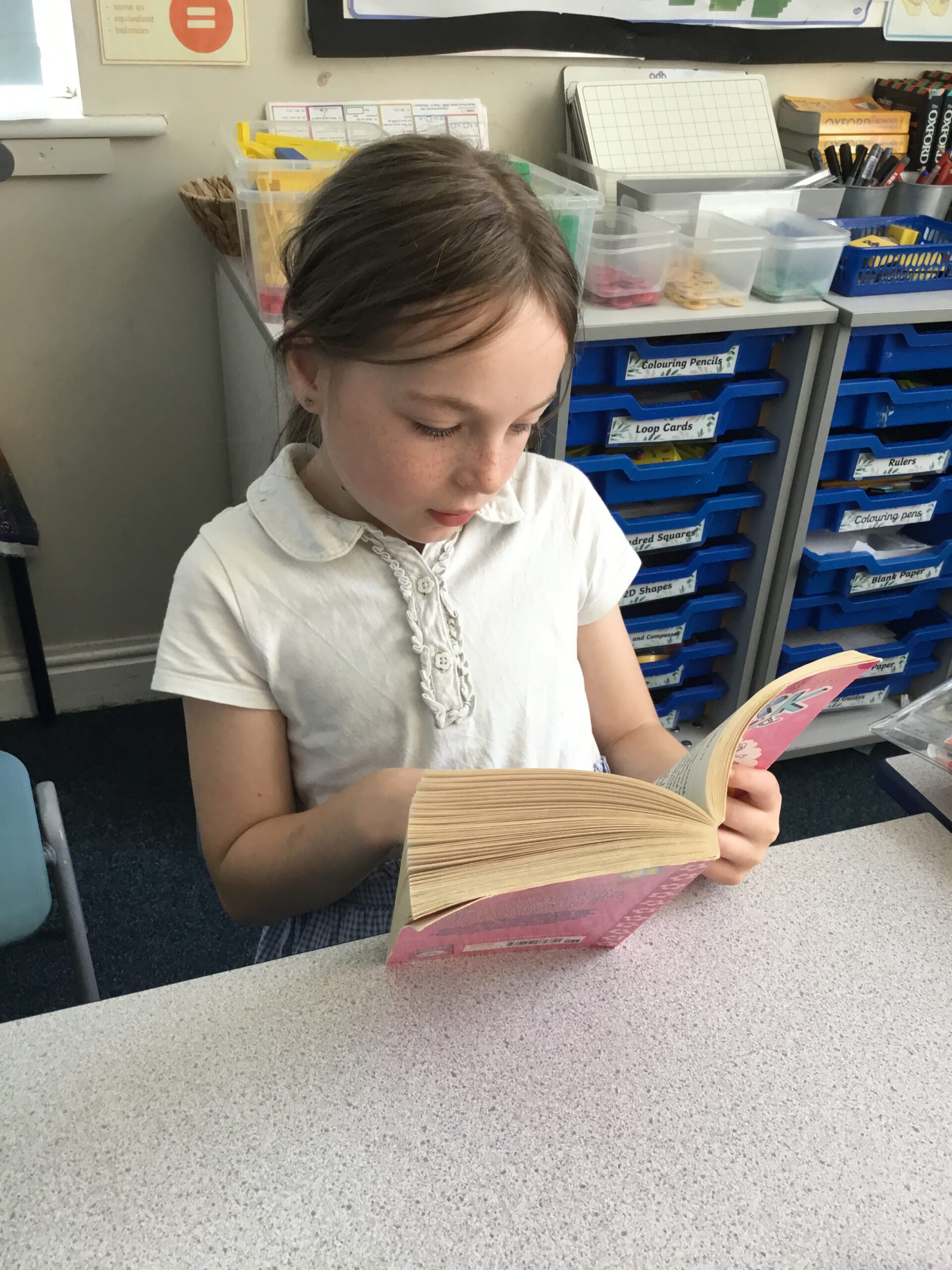
Reading opportunities across the Federation
At both Follifoot and Spofforth Primary Schools, we want to encourage and nurture a love of reading for all our children and we do this in a variety of ways.
Our English curriculum has been carefully considered and is constantly adapting to meet the needs of our learners and reflect the world in which they live. Our curriculum is text based and quality books sit at the heart of this.
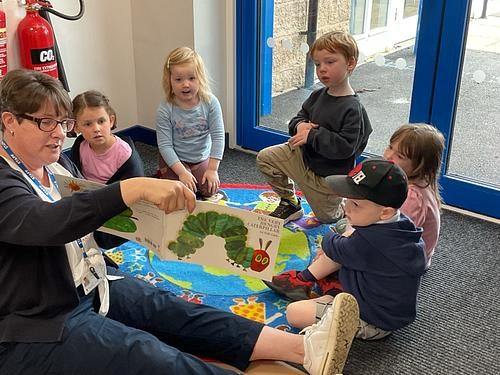
Phonics and Early Reading
At Follifoot and Spofforth Primary Schools we believe that all our children can become fluent readers and writers. This is why we teach reading through Little Wandle Letters and Sounds Revised, which is a systematic synthetic phonics programme. We start teaching Little Wandle Foundations in our Nursery and then, from Reception, we follow the Little Wandle Letters and Sounds Revised progression, which ensures children build on their growing knowledge of the alphabetic code, mastering phonics to read and spell as they move through school. As a result, all our children are able to tackle any unfamiliar words as they read.
We value reading as a crucial life skill. By the time children leave us, they read confidently for meaning and regularly enjoy reading for pleasure. Our readers are equipped with the tools to tackle unfamiliar vocabulary. We encourage our children to see themselves as readers for both pleasure and purpose.
In our EYFS class we provide a balance of child-led and adult-led experiences for all children that meet the curriculum expectations for ‘Communication and language’ and ‘Literacy’. These include:
- sharing high-quality stories and poems
- learning a range of nursery rhymes and action rhymes
- activities that develop focused listening and attention, including oral blending
- attention to high-quality language.
We ensure Nursery children are well prepared to begin learning grapheme-phoneme correspondences (GPCs) and blending in Reception.
We teach phonics for 30 minutes a day In Reception and Year 1. In Reception, we build from 10-minute lessons, with additional daily oral blending games, to full-length lessons as quickly as possible. Each Friday, we review the week’s teaching to help children become fluent readers.
This daily structured approach supports children in learning letters and sounds and our ongoing assessment identifies children in danger of falling behind, and they are given extra one-to-one tuition delivered by our trained and skilled staff using the catch up and keep up programmes from Little Wandle. All staff delivering phonics sessions are fully trained and any new staff who will be teaching phonics are trained as soon as possible. Additionally, a literacy specialist from the English Hub visits the school regularly to provide support and training for leaders and staff.
All children use decodable books linked to the teaching in class daily, and home reading books are aligned with sounds learned in class.
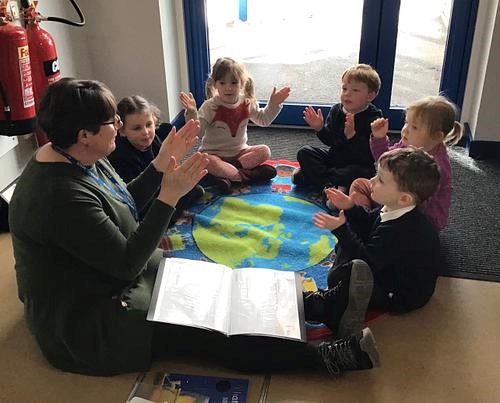
Whole Class Reading
Once pupils complete the phonics programme, the teaching of reading continues during whole class reading sessions. This follows a set procedure that is a research-based approach to consolidate the progress of reading.
During whole class reading sessions, children are taught the reading strands from the National Curriculum, focusing on vocabulary, decoding, reading fluency and comprehension skills.
A variety of texts, including fiction, non-fiction and poetry, are used as the basis of the lessons, and these whole class texts become incrementally more challenging as the children progress. A variety of question stems and question types are shared and modelled by staff until pupils are confident in answering comprehension style questions independently.
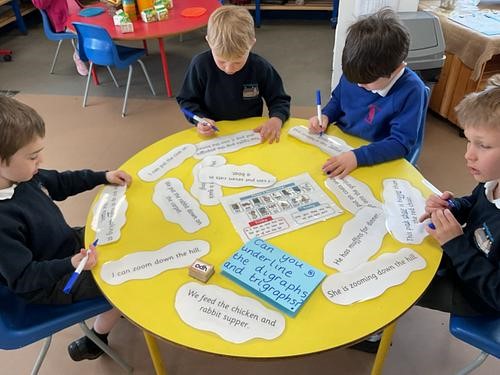
Assessment
Regular formative and summative assessment supports staff in knowing which pupils need further support as well as knowing the areas their quality first teaching, and for interventions.
When children are identified as struggling with an age-appropriate expectation, extra support and intervention is put in place to help accelerate their learning. Progress is closely monitored for all pupils, including SEND pupils, to ensure they make good progress. We use a combination of Rising Stars PiRA (Progress in Reading Assessment) and Collins individual Fluency assessments each term.
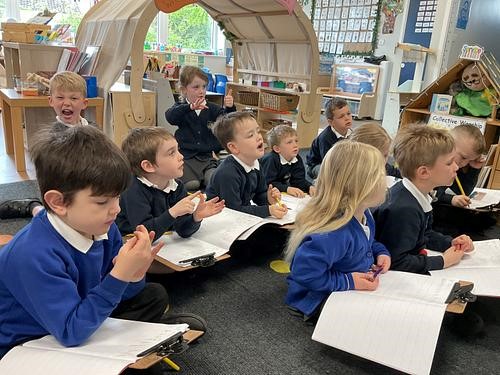
Promoting a love of reading
Across the federation, promoting a love of reading is a priority for all staff. Research studies have found that reading for pleasure enhances empathy, confidence and concentration. To support our children in developing their enjoyment of reading, we engage a range of strategies and ensure our children have access to a wide range of reading materials.
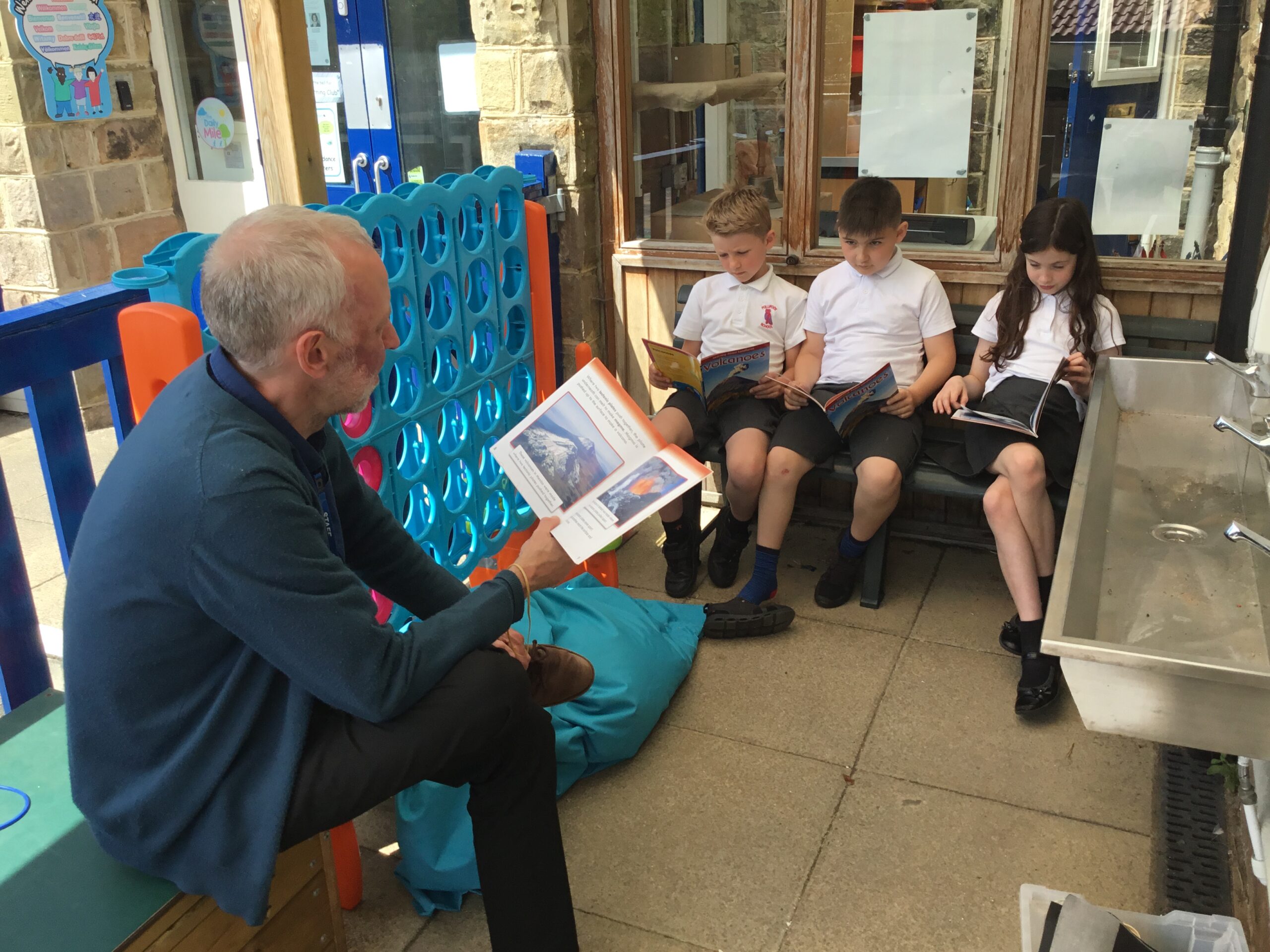
Regular Shared Reading
To promote a love of reading, staff read to children regularly. Sharing a book with the class is a very special way to explore a new world together and expose pupils to widen vocabulary and themes.
Teachers aspire to be ‘influencers’, using the valuable shared reading experiences as a basis for high quality teacher-children conversations, developing skills and encouraging children to talk about books and different authors from a range of genres, cultures and aspects of life.
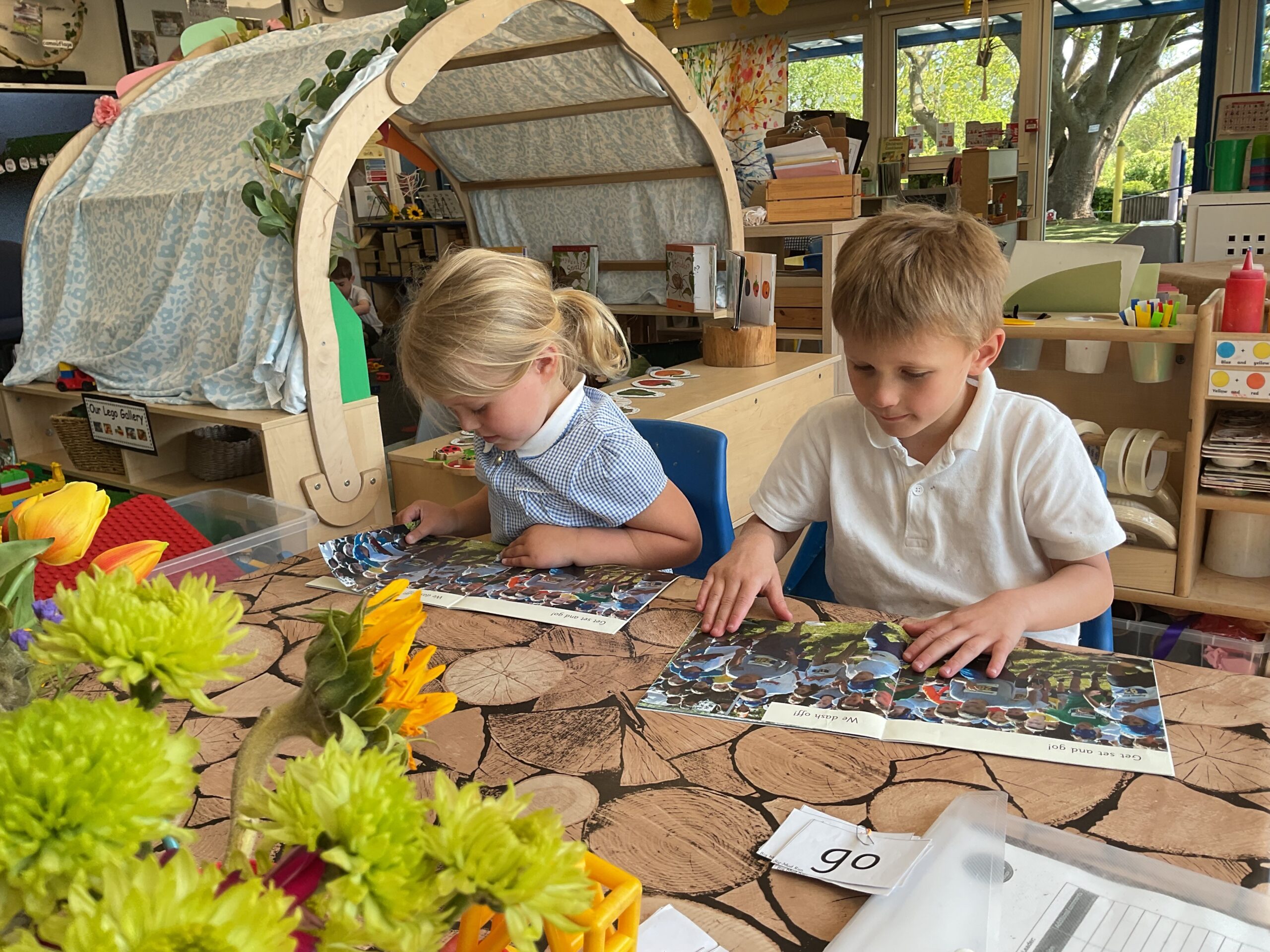
Library / Reading areas
Each classroom has a book area, where children are able to choose from high quality books. The books are regularly replenished, in order to respond to pupil voice and to give the children a varied diet of reading materials that aim to foster their life-long love of reading.
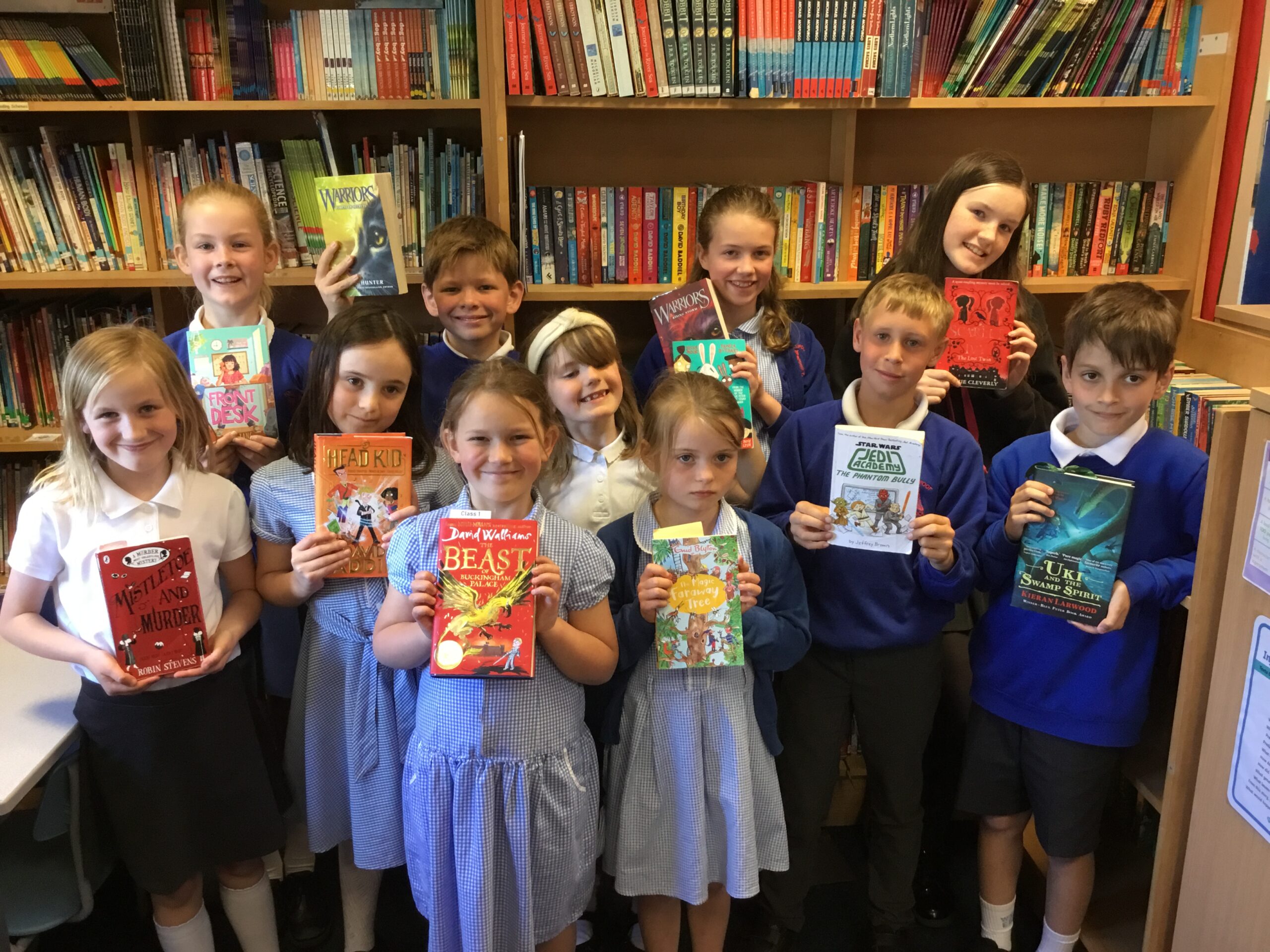
Reading Ambassadors
A group of passionate Reading Ambassadors, children from KS1 and KS2, inspire reading around the school. They share their enthusiasm for reading with their peers, lead assemblies and are excellent role models to others. Among their roles are:
-reading to and with children around the school
-planning for themed days such as World book day
-promoting a love of reading through their expertise and passion
Our ambassadors make a significant contribution to our aim of ensuring all children find life-long enjoyment in reading and books.
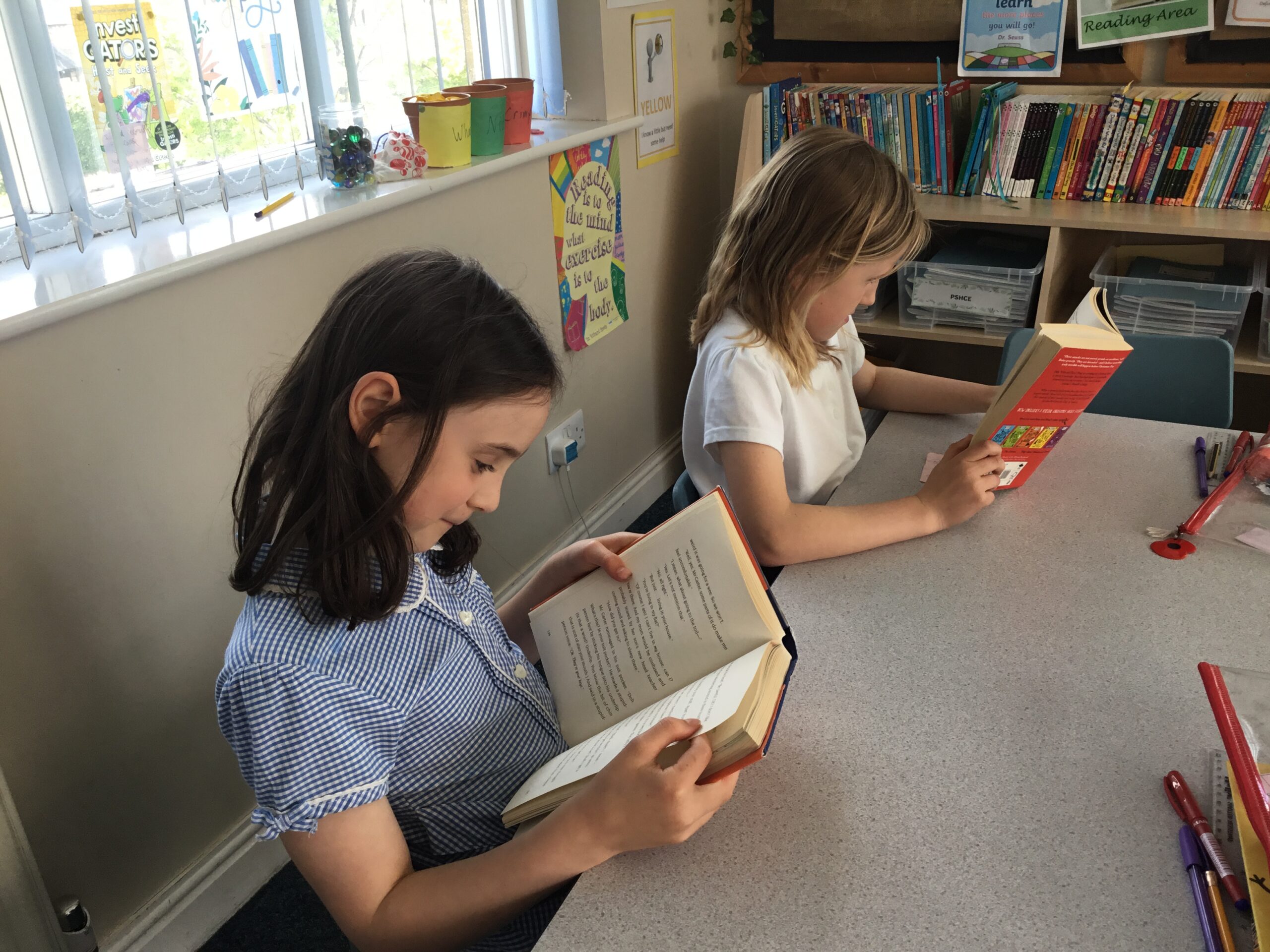
Book Battles
In key stage 2, pupils are invited to ‘battle’ a peer by sharing with a class a book they have loved. There are many benefits to book battles: pupils experience planning and presenting to an audience, their enthusiasm provides good role models to others, pupils are inspired to read more widely based on the recommendations of peers and we regularly find out about new books and authors to add to our library.
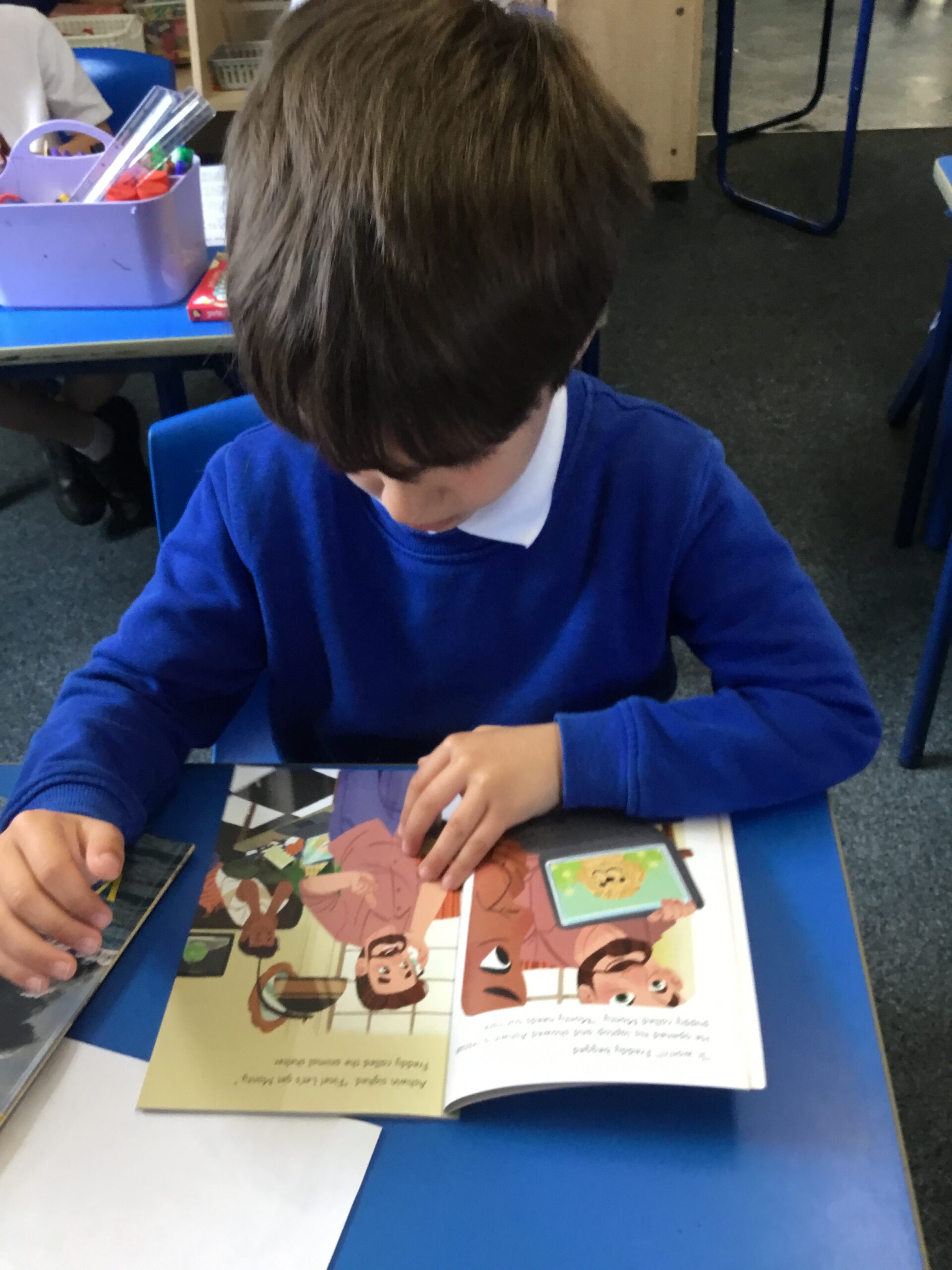
World Book Day
Each year we enjoy celebrating World Book Day as part of an especially themed week full of exciting activities that raise the profile of reading and motivate the children to be more adventurous in their selection of books. World book day is a special day in the school calendar for pupils and staff to share a love of stories and reading.
Please click on the links below to access various reading resources:
Phonics:
Phonics-and-Early-Reading-Policy-2024-25
Reception Autumn 1 Letter formation and Pronunciation guide
Reception Autumn 2 Letter formation and Pronunciation guide
How-to-say-Phase-3-sounds and How-to-say-the-Phase-5-sounds
Capital Letter Formation Guide
Little Wandle Letters and Sounds: https://www.littlewandlelettersandsounds.org.uk/resources/for-parents/
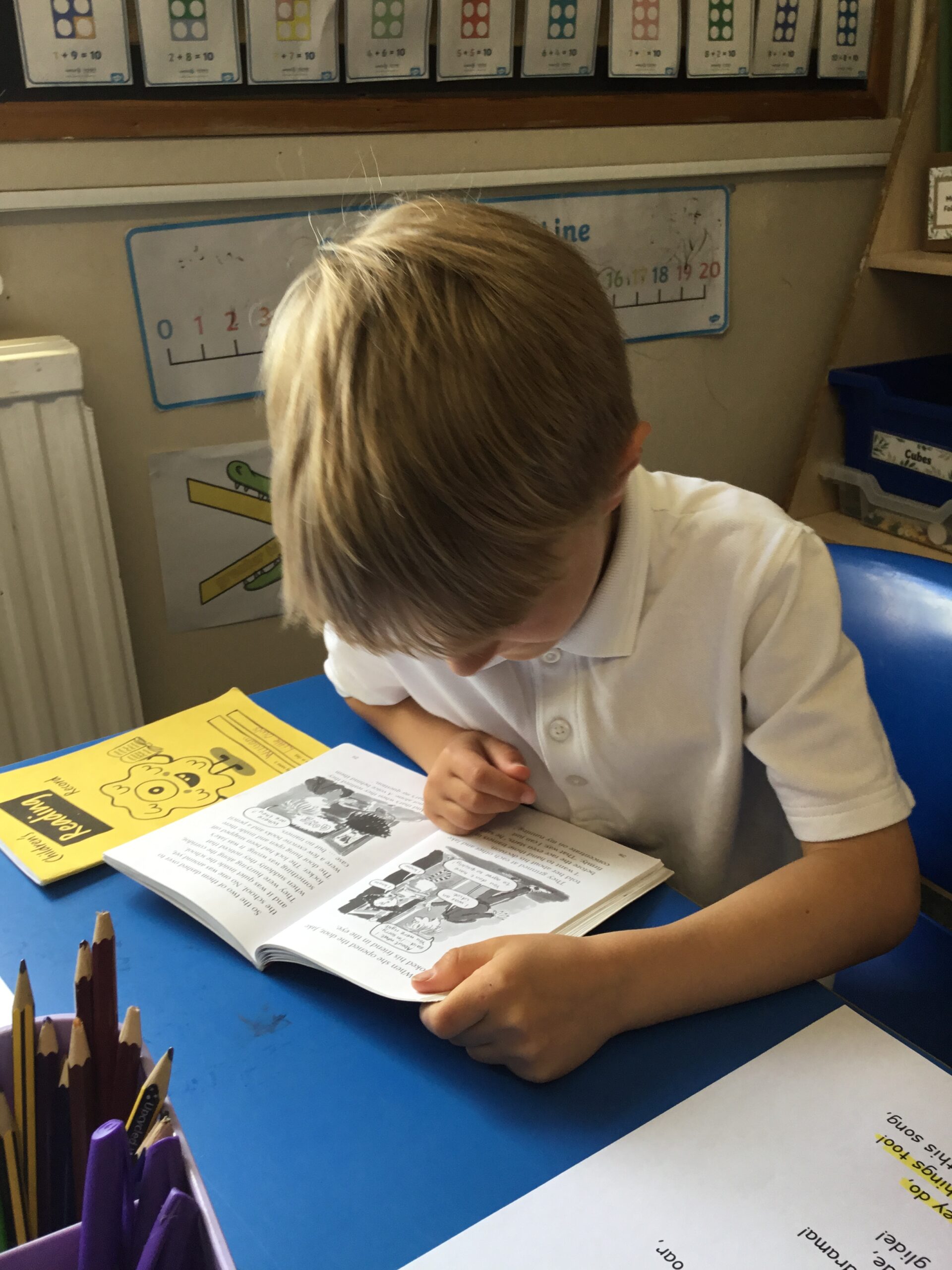
Other reading resources:
Recommended-books-for-Foundation-stage
100 books to try and read in Years-3-and-4
100 books to try and read in Years-5-and-6
